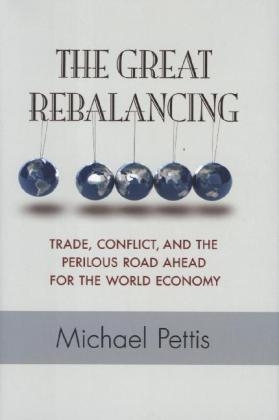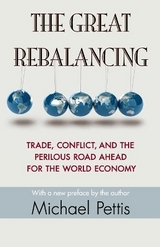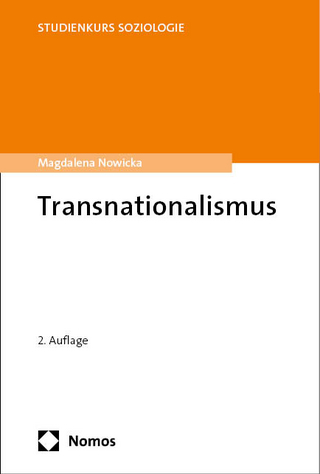
The Great Rebalancing
Princeton University Press (Verlag)
978-0-691-15868-6 (ISBN)
- Titel erscheint in neuer Auflage
- Artikel merken
Although various imbalances may seem unrelated, Pettis shows that all of them--including the U.S. consumption binge, surging debt in Europe, China's investment orgy, Japan's long stagnation, and the commodity boom in Latin America--are closely tied together, and that it will be impossible to resolve any issue without forcing a resolution for all. Demonstrating how economic policies can carry negative repercussions the world over, The Great Rebalancing sheds urgent light on our globally linked economic future.
Michael Pettis is professor of finance and economics at Peking University, a senior associate at the Carnegie Endowment, and a widely read commentator on China, Europe, and the global economy. He is the author of The Volatility Machine: Emerging Economies and the Threat of Financial Collapse.
CHAPTER ONE Trade Imbalances and the Global Financial Crisis 1 * Underconsumption 4 * The Different Explanations of Trade Imbalance 6 * Destabilizing Imbalances 9 * We Have the Tools 11 * Why the Confusion? 14 * Some Accounting Identities 17 * The Inanity of Moralizing 19 * The New Economic Writing 22 CHAPTER TWO How Does Trade Intervention Work? 26 * Trade Intervention Affects the Savings Rate 29 * Currency Manipulation 32 * Exporting Capital Means Importing Demand 34 * What Happens If China Revalues the Renminbi? 37 * Wealth Is Transferred within China 40 * Does China Need a Social Safety Net? 42 CHAPTER THREE The Many Forms of Trade Intervention 47 * How Changes in Wealth Affect Savings 50 * Wage Growth 52 * Trade Policy as the Implicit Consequence of Transfers 55 * Financial Repression 58 * Higher Interest Rates and Household Wealth 61 * Do Higher Interest Rates Stimulate or Reduce Consumption? 64 * Currency versus Interest Rates 66 CHAPTER FOUR The Case of Unbalanced Growth in China 69 * What Kind of Imbalance? 74 * Growth Miracles Are Not New 78 * The Brazilian Miracle 81 * Powering Growth 84 * Paying for Subsidies 87 * Limits to Backwardness 89 * The Trade Impact 92 * A Lost Decade? 94 * Can China Manage the Transition More Efficiently? 96 * Some More Misconceptions 97 CHAPTER FIVE The Other Side of the Imbalances 100 * Can Europe Change American Savings Rates? 103 * How Does Trade Rebalance? 106 * Globalization Is Not Bilateral 109 * The Global Shopping Spree 113 * Trade Remains Unbalanced 115 CHAPTER SIX The Case of Europe 119 * The Mechanics of Crisis 122 * Too Late 125 * German Thrift 128 * Forcing Germany to Adjust 131 * Two-Sided Adjustment 133 CHAPTER SEVEN Foreign Capital, Go Home! 136 * Swapping Assets 139 * It's about Trade, Not Capital 142 * Trade Imbalances Lead to Debt Imbalances 144 * The Current Account Dilemma 147 CHAPTER EIGHT The Exorbitant Burden 150 * Why Buy Dollars? 153 * It Is Better to Give Than to Receive 157 * Foreigners Fund Current Account Deficits, Not Fiscal Deficits 161 * Rebalancing the Scales 163 * When Are Net Capital Inflows a Good Thing? 166 * Can We Live without the Dollar? 168 * Why Not Use SDRs? 172 * An American Push Away from Exorbitant Privilege 174 CHAPTER NINE When Will the Global Crisis End? 178 * Transferring the Center of the Crisis 180 * Reversing the Rebalancing 183 * Some Predictions 185 * The Global Impact 191 Notes 197 Index 205
| Verlagsort | New Jersey |
|---|---|
| Sprache | englisch |
| Maße | 152 x 235 mm |
| Gewicht | 482 g |
| Themenwelt | Sozialwissenschaften ► Politik / Verwaltung ► Europäische / Internationale Politik |
| Wirtschaft ► Allgemeines / Lexika | |
| Wirtschaft ► Volkswirtschaftslehre ► Makroökonomie | |
| ISBN-10 | 0-691-15868-1 / 0691158681 |
| ISBN-13 | 978-0-691-15868-6 / 9780691158686 |
| Zustand | Neuware |
| Haben Sie eine Frage zum Produkt? |
aus dem Bereich



